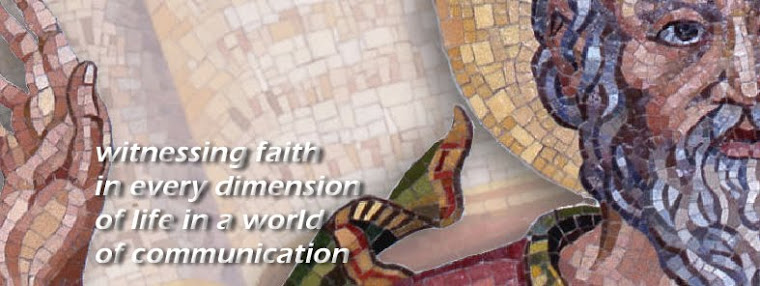 |
Blessed James Alberione,
First Apostle of the
New Evangelization |
An E-book from the Pontifical Missionary Union: by Vito Del Prete edited by Emilia Paola Pacel http://www.fides.org/books/the_good_heart/
Excerpt - The new era of humanity. Planetary changes and humanity’s new absolutes: technocracy, mass media, globalisation,the universalistic pretension of culture The Encyclical Redemptoris Missio, in number 37c, significantly used the expression «modern equivalents of the Areopagus» to indicate the places, situations, milieu and particular human groups to which the Church’s evangelizing activity ought to be directed. «After preaching in a number of places, St. Paul arrived in Athens, where he went to the Areopagus and proclaimed the Gospel in language appropriate to and understandable in those surroundings (cf. Acts 17:22-31). At that time the Areopagus represented the cultural centre of the learned people of Athens, and today it can be taken as a symbol of the new sectors in which the Gospel must be proclaimed».The Encyclical does not claim to give an exhaustive list of the fields of missionary commitment, but clearly it indicates the new emergencies and urgencies that are arising from the present historical march of humanity.This is the fruit of sensitivity to a reading and interpretation of the history (signs of the times) of humanity, which must reach its fullness through the sowing and growth of the Kingdom of God within it. Every generation and every age from time to time has situations that need to be redeemed, because they are blatantly harmful to human dignity and to human justice and solidarity. Likewise the inflexible and inhuman logic of discriminatory personal, community and international relations, of economic, political and religious systems is creating new phenomena of slavery, subservience, oppression and conditioning. In order to understand where the Church’s evangelizing efforts ought to be primarily directed it is necessary to analyse the causes, identify the predominant thought, cultures and interests that lie behind and produce this phenomena. In fact this mission of the Church is and remains specific to the extent in which she addresses the proclamation of the Kingdom to those sectors of humanity that have not yet been touched by the Gospel, or are in sharp contrast with human dignity and with the Word of God. «For the Church, evangelizing means bringing the Good News into all the strata of humanity, and through its influence transforming humanity from within and making it new» (Evangelii Nuntiandi [EN] 18).



